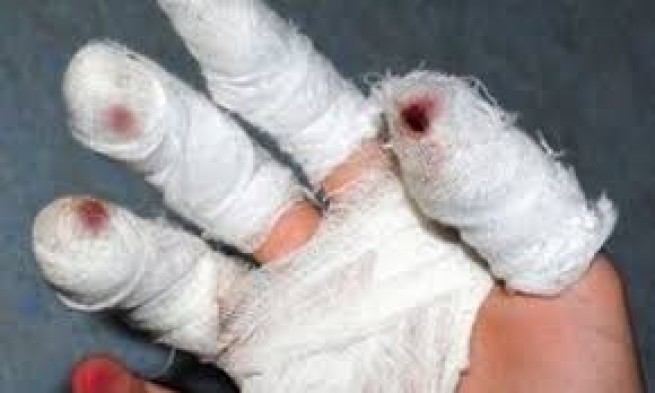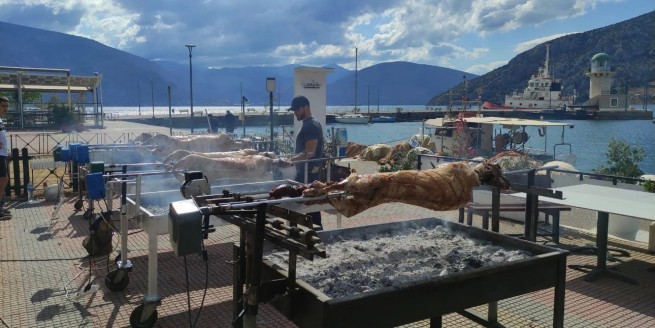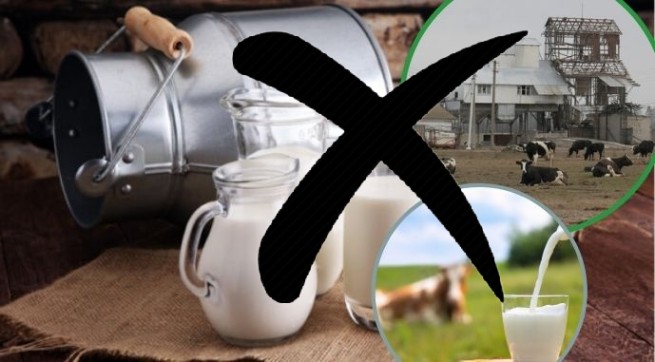Experts familiar with the food market situation fear serious food shortages in the coming period, especially Greek dairy products and meat, due to a huge disaster in the agricultural sector of the Thessalian Plain.
The loss of livestock in the region is a concern as farmers will need time and money to grow the livestock that was permanently lost due to Cyclone Daniel.
Well, until then, “everything missing” will be covered by imports. And this means a sharp jump in prices (since quite a lot of transportation costs will be added to the price of the product. And the price of gasoline is still rising).
Livestock losses, based on declarations already submitted in the Thessaly region (and according to the latest data from the Ministry of Agriculture and Food), amount to 70,935 goats and sheep, 6,136 head of cattle, 20,326 pigs and 131,795 birds.
https://rua.gr/news/prireco/57553-e-lekkas-fessalijskaya-ravnina-vosstanovitsya-cherez-pyat-let-ushcherb-fermeram-prevysit-1-billion-evro.html
In our country there is a shortage of both meat production and milk production, which further complicates the situation and creates risks of rising product prices.
In Greece, 95% of goats and sheep are raised for their milk, which is mainly used to produce soft cheeses, primarily feta.
The reduction in supply volumes, according to market participants, threatens the production of cheese products. Estimated, annual exports of feta reach 85,000 tons.
https://rua.gr/news/bissecon/57627-tsiklon-daniel-problemy-s-nekhvatkoj-prodovolstviya-i-na-chto-podnimutsya-tseny.html
According to the Hellenic Livestock Association, Floods and fires this summer destroyed large numbers of livestock and hundreds of agricultural properties.
It is significant that the region of Thessaly participates with a share of 19.4% in the total production of domestic sheep milk, 13.7% – goat milk, 19.7% – cow milk, as well as 18.5% in the production of beef, 10% – pork, 40% in soft and 25% hard cheeses. So, as manufacturers and retailers say, the problem is, as they say, “on the face.”
“We have not yet counted the livestock and do not know the real situation,” says Savvas Kessidis, president of the Panhellenic Butchers Federation. According to him, Thessaly accounts for 10-12% of pork production and 28-30% of lamb production.
Today this production has been destroyed by 35-45%, he says. According to him, the deficit in the market can be covered by imports from abroad, but this can also have an impact on prices that are not yet possible to predict. The problem will be not so much in the meat as in the milk.
https://rua.gr/news/obschestvo/57534-syrodel-plakal-ot-poteri-74-letnego-truda-ego-semi.html
Representatives of breeders note that the problem is huge. “Even those who have not lost all their animals or suffered complete destruction of their livestock and stalls will need both at least a year and a half to get back on your feet, and this despite the fact that compensation will be provided immediately“says ΕΘΕΑΣ President Pavlos Satolias.
In sheep and goat farming, most of the domestic consumption is covered by domestic production. In livestock production, meat production in Greece covers only 30% of total demand.
https://rua.gr/news/sobmn/57653-kak-utonula-fessalijskaya-dolina.html
Losses are also significant in beekeeping, which creates problems in honey production. More than 44,000 hives were destroyed in Thessaly. In fact, the consequences are not measurable because during this period there were hives from all over Greece in the area.







More Stories
The Greek Tax Administration sent out "letters" 20,000 taxpayers who "forgot" declare income
Tax returns 2024: which income is exempt or subject to special tax
Tax returns: platform open for legal entities